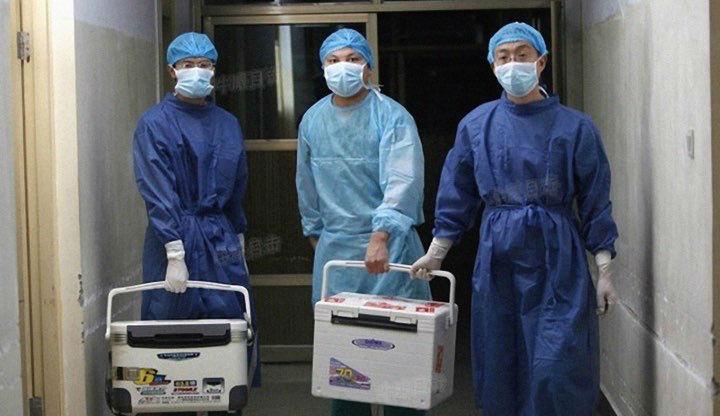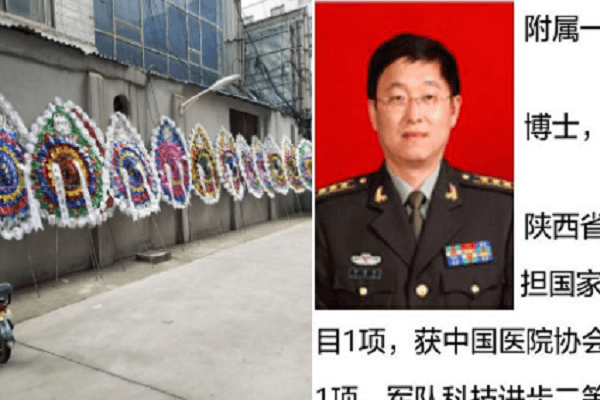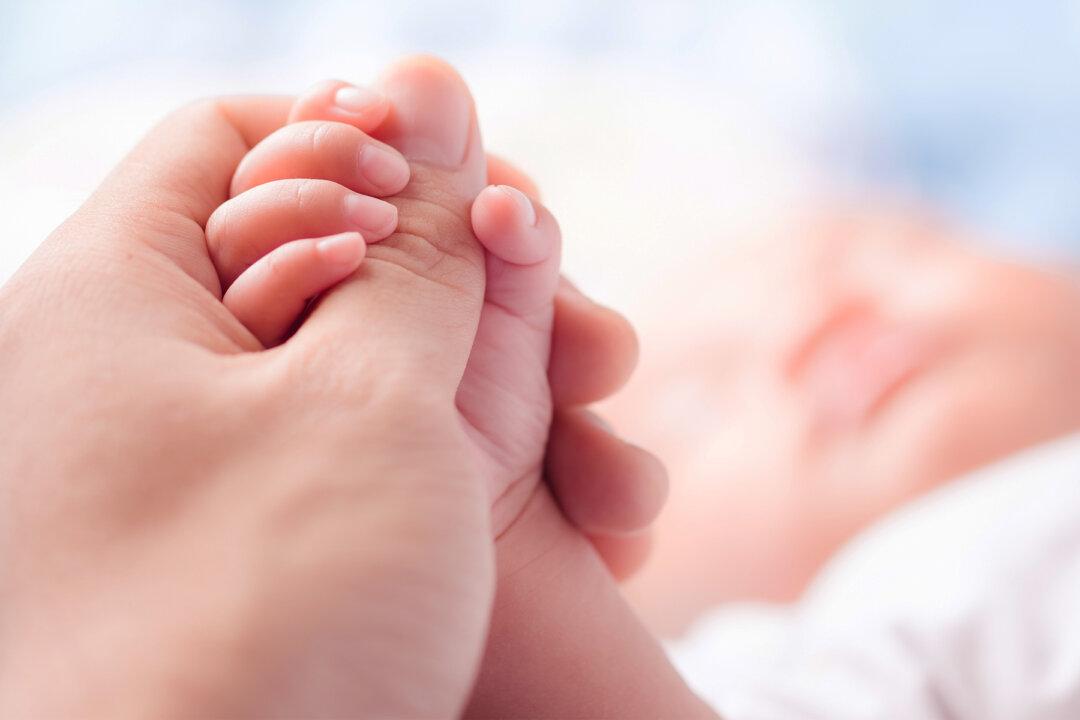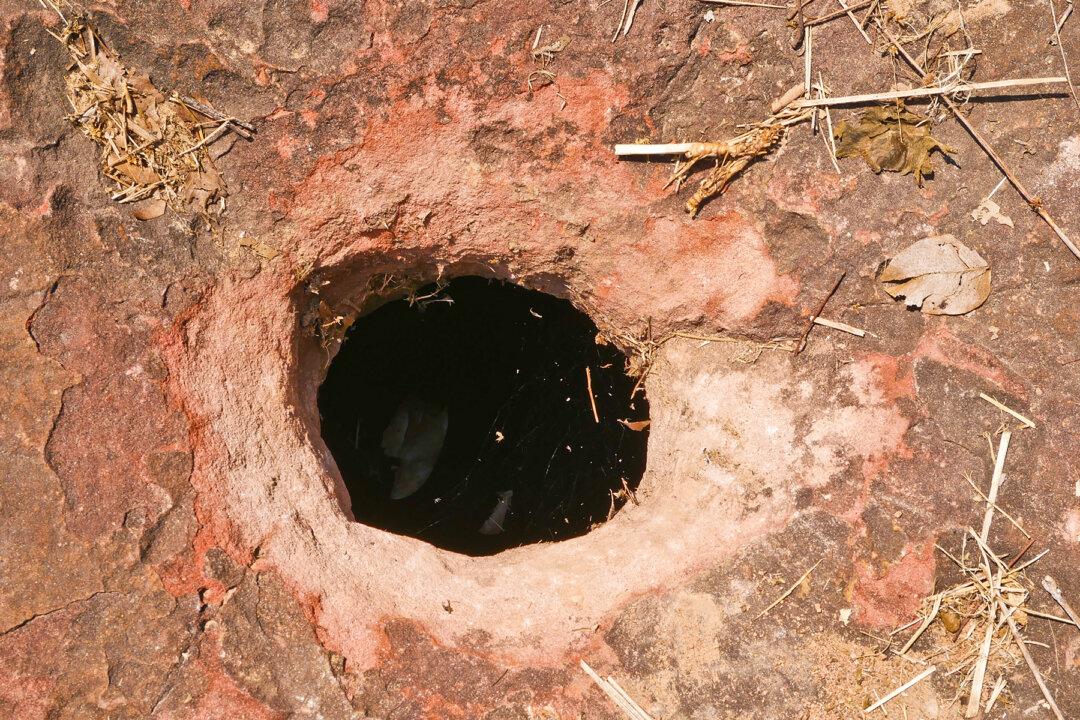According to the post, Li Jinge jumped from the 30th-floor window of his apartment. The post included a photo of his family at what appears to be his funeral. The floral wreath nearest the camera has signatures that appear to be signed by his sister and sister-in-law.
Li seemed to have everything to live for. He served as vice superintendent and deputy chief physician of Tangdu Hospital, as well as the deputy secretary general of the Shaanxi Province Medical Association. He has won several awards from the People’s Liberation Army (PLA) for his scientific research. He specialized in treating hepatitis.
The timing of Li’s suicide has led some to suspect that his death is related to crimes of organ harvesting.
Li had been under investigation by Chinese Communist Party authorities, as part of a broader probe into associates of former military generals Guo Boxiong and Xu Caihou, both of whom were purged from the party in 2015 and 2014, respectively.
Independent researchers have detailed how China’s state-sanctioned practice of forced organ harvesting from prisoners of conscience for use in organ transplant surgery is closely connected to China’s military medical system.
The WOIPFG has also named the Tangdu Hospital among a list of military hospitals involved in forced organ harvesting from Falun Gong practitioners.

Li is one of a list of top officials and surgeons within the Chinese military medical system who have been reported in recent years as committing suicide.
Two factors may have been involved in this spate of suicides: corruption and guilt.
The organ transplant industry is highly profitable. Chinese leader Xi Jinping’s signature anti-corruption campaign may have exposed these officials’ gains, which may have been increased with bribery. Suicide may also have seemed preferable to a stint in a Chinese prison.
And then there is the horror of someone trained to heal pillaging organs from a living patient.
The world first learned of the crimes of organ harvesting in China in 2006 from Annie (pseudonym), the ex-wife of a neurosurgeon at the Liaoning Provincial Thrombosis Hospital. She spoke about how her ex-husband suffered nightmares, insomnia, and depression due to his immense guilt, and confessed to her how he had performed operations on Falun Gong practitioners who were still alive. Their bodies were thrown into incinerators after the operations, he told her.
Whether due to this kind of emotional burden, or the likelihood of being jailed for corruption, several of China’s top transplant doctors have taken their own lives.
On the afternoon of May 4, 2007, Li Baochun, a 44-year-old expert in nephrology, committed suicide by jumping from the 12th floor of the Changhai Hospital, which is affiliated with the Second Military Medical University in Shanghai. Li was a professor, deputy director of the Department of Nephrology, chief physician in Changhai Hospital, and committee member of the China Dialysis and Transplantation Association. WOIPFG has listed him as a doctor involved in organ harvesting crimes.
In 2010, 84-year-old Li Leishi, known as the “father of kidney transplants in China,” died after jumping from his 14th-floor apartment in Nanjing City, Jiangsu Province. The news caused a stir within the medical field. Li Leishi was vice superintendent of the Nanjing Military Region General Hospital, a scholar at the Chinese Academy of Engineering, and an internationally renowned expert in nephrology. He once received a special visit from Jiang Zemin, the former Party leader who initiated the persecution of Falun Gong.
The Nanjing hospital and Li Leishi have been named by WOIPFG for their alleged involvement in the forced harvesting of organs from Falun Gong practitioners for use in transplant surgery.
On March 24, 2014, Zhang Shilin, deputy director of urology at the Shanghai Cancer Hospital, died after jumping from the window of his office on the 8th floor. Zhang was a colleague of Li Baochun, the expert in nephrology mentioned above, and also listed by WOIPFG.




